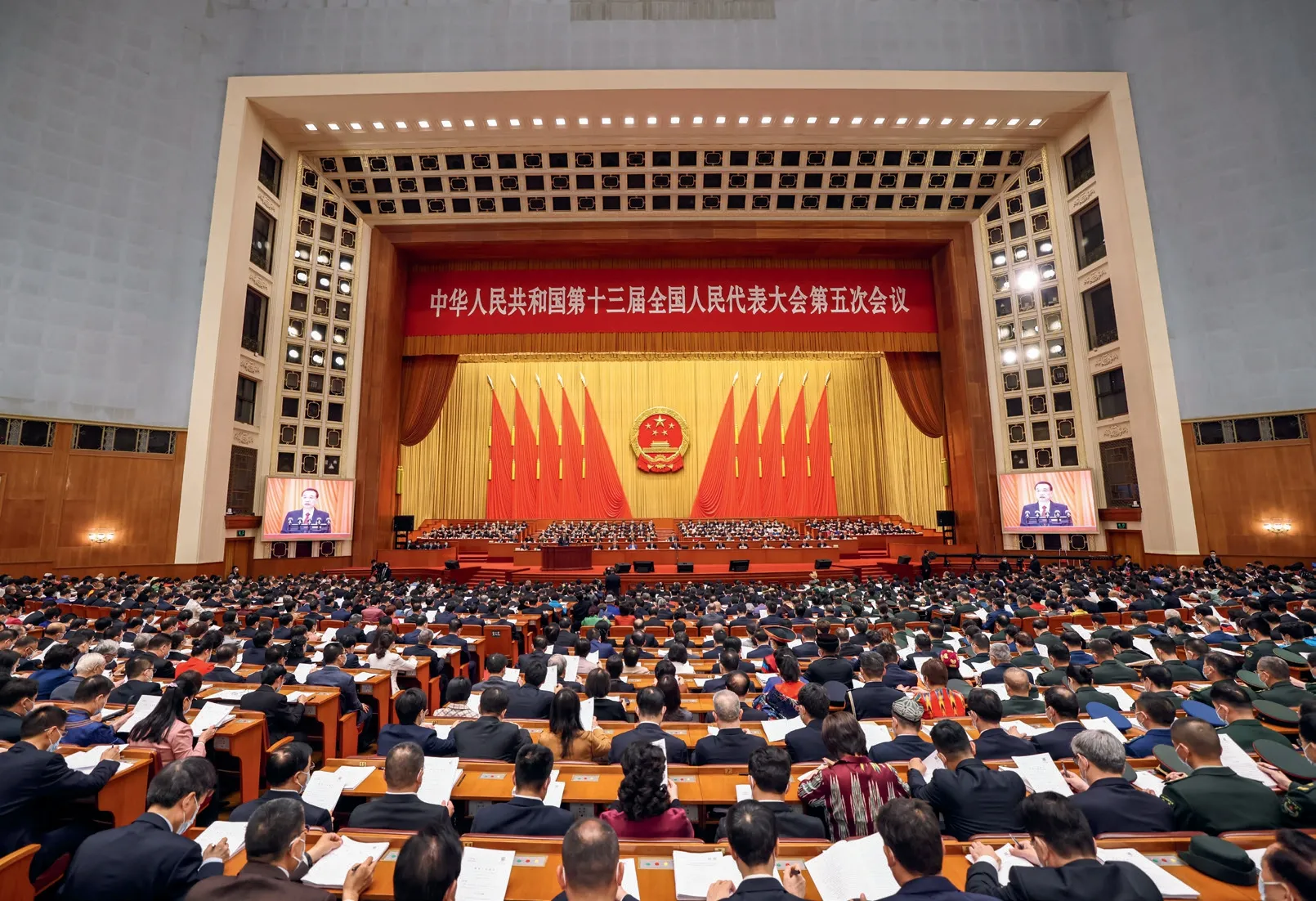China Will Maintain a Steady Course in a Challenging Time
By WILLIAM JONES
CHINA began this year’s annual Two Sessions of its national legislature and top political consulative body in a very unsettled global environment. The Russian military action in Ukraine as well as the massive sanctions regime imposed by the West on Russia, a major producer of the world’s energy supply, has created a challenging environment for any country to make plans for the future. Nevertheless, in his government work report,which traditionally begins the legislative period,Premier Li Keqiang expressed confidence that China would remain on a course of stable development.This is also the year for the convening of the 20th National Congress of the Communist Party of China(CPC), which will determine the leadership team going forward and lay out the blueprint perhaps for the next decade or longer.
The government work report sets the growth target for the coming year at 5.5 percent, a modest growth for China compared with last year’s 8.1 percent, but not a bad prediction considering the stormy weather awaiting the world in the course of this year. The repercussions of the massive sanctions on Russia have already affected the price of oil and gas on the international market, and they are also being felt in the increase of the price of agricultural products like wheat and soybeans. With its recent introduction of the “dual circulation” model, relying more on domestic consumption than external trade to propel the economy, China is in a much better position to weather price fluctuations on the world market.
China has also succeeded better than other countries in recovering from COVID-19. While there is an outbreak of the latest Omicron variant, the combined resources of the nation are being devoted to overcoming the challenge. As a result of the strict measures put into place almost from the beginning of the pandemic, the Chinese economy was able to recover more quickly than any other country and begin economic recovery early, as witnessed by the high growth figures from last year as well as the creation of over 12 million urban jobs during that same period.
Thanks to its unique system of governance, up until now China has also been less affected by the inflation that is beginning to be felt by many countries, with the CPI in China rising only 0.9 percent last year. This year’s target will keep CPI at around 3 percent, a none-too-shoddy result in a world in which prices may soar. At the same time, Li Keqiang was also clear that the way ahead would not be easy. “A comprehensive analysis of evolving dynamics at home and abroad indicates that our country will encounter many more risks and challenges, and we must keep pushing to overcome them,” he said.
Nevertheless, China has a good deal of leeway in pursuing its goals even in this difficult international environment. Most importantly, the country will move forward in protecting the food supply by ensuring that domestic production is free from price fluctuations on the international market. They will also continue the rural revitalization program,working to prevent anyone from falling back into poverty.
The country will make a concerted effort to stay on the cutting edge of science and technology, an important element in the innovation-led economic growth program, and a strong defense against the measures imposed by the U.S. government to cut China off from the U.S. market in hi-tech goods. Li Keqiang also announced that China will open up more to foreign investment and assured foreign investors that they can operate from a level playing field. “We will encourage foreign-invested enterprises to move into a broader range of sectors, and support more foreign investment in medium- and high-end manufacturing, R&D, and modern services,as well as in the central, western, and northeastern regions,” Li said. “We will improve services for promoting foreign investment and accelerate the launching of major foreign-funded projects.”
China will also move forward with high-quality cooperation in the Belt and Road Initiative. “We will, on the basis of consolidating cooperation on enhancing connectivity, move steadily to open up new areas of cooperation,” Li said. “New landsea transit routes for the western region will be further developed. We will carry out outbound investment and international cooperation in a well-regulated way, and effectively guard against overseas risks.”
Meanwhile, China plans to provide additional funding to promote micro, small, and medium-sized enterprises’s development and a package of tax cuts and fee waivers for these enterprises to allow them to continue smooth operations in an uncertain environment. There will be continued emphasis on issues related to people’s livelihood, including social welfare, medical insurance, education, and child support. For this reason, while the central government will continue to tighten its belt, it will conduct a “prudent” monetary policy to provide more funding to local governments which are largely responsible for implementation of the policies benefiting businesses and the people’s livelihood. While maintaining sufficient funding for steady growth in the physical economy, there will be rigorous oversight to avoid the development of any financial bubbles and continued enforcement of anti-corruption measures.

The fifth session of the 13th National People’s Congress opens at the Great Hall of the People in Beijing on March 5, 2022.
While the Chinese ship of state will be traversing choppy waters in the coming year, it is clear from the government work report that there is a firm hand on the ship’s helm which will maintain a steady course whatever heavy winds may come its way.

